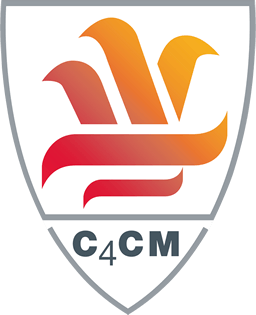What do employers want from their employees: knowledge or competence?

I visited a client recently who told me they were re-orienting their training because they needed people who can do things, they distinguished between “know how and know what”. Know how is knowledge, often raw and not contexualised, classically this knowledge is gained in a class room. What employers want is people who can do things — employing contextualised knowledge, experience and skills — know that!
The client introduced me to the Dreyfus model of skill acquisition to explain the difference. My question is: how can training qualifications indicate competence rather than knowledge?
<!–more– click here to find out how>
The Dreyfus model
In this model the learner acquires skills (the ability to execute) in a series of stages:
- Novice — rigid adherence to rules, no use of judgement or context. This is the holder of knowledge only.
- Advanced beginner — limited use of context and inability to prioritise. This person has some experience but is focussed on the task, not the job.
- Competent — able to plan and manage longer term goals, can manage lots of (potentially conflicting) information and uses context. This person has experience, sees some of the big picture and makes decisions in context but still relies a lot on learned or standardised procedures.
- Proficient — has a holistic view of situations and makes decisions accordingly, can prioritise and see where new ideas are needed.
- Expert — operates almost unconsciously within the context using intuition and tacit underestanding of situations.
I think you can see the development of an internal model of the job which matches the progress from initiate, through apperentice and professional to mastery. This model is widely used in the training and development of medical staff; including nurses, surgeons and general practitioners — which recognises basic skills as well as deep understanding of the complexity of the human body and its social context.
In a recent blog we looked at how a qualification can recognise some of the higher order thinking skills that would need to be acquired to move to Advanced Beginner and Competent. We introduced the Kirkpatrick model of training outcomes. This model is very useful because it does distinguish between knowledge (Kirkpatrick level 2) and competence (Kirkpatrick level 3).
What can a qualification show?
A qualification on its own will not distinguish between knowledge and competence. A holder of an honours degree will clearly have knowledge, but experience or competence? I would argue that a modern university degree demonstrates knowledge and the ability to do academic learning. What the employer wants is a competence, hence the reason why so many ask for some experience in job adverts. The typical two year experience requirement implies that it takes two years to acquire a useful level of competence on top of knowledge!
To understand what a qualification is indicating it is necessary to look at the assessment method for the qualification. There are two basic sorts used in so-called professional qualifications:
- An objective test of knowledge. To be objective the answers must resolve to true or false against a written body of knowledge. These tests are typically taken at the end of the training course when the knowledge is freshest. They are a good indicator of knowledge, nothing more. Which identifies at most a Novice in the Dreyfus model.
- An evidence based workplace assessment. This involves the candidate using skills and knowledge in a workplace situation to produce evidence that they have understood and can apply their skills and knowledge to a context. Which indicates a level between Advanced Beginner and Competent in the Dreyfus model.
What you can not do is look at the title of a qualification, or often the level. My favourite miss-named qualification is the PRINCE2® Practitioner. The assessment is an objective test and the candidate can (at best) indicate whether solutions proposed by the examiner are consistent with the text. The candidate does not have to have practised anything. I know of a number of people who have read the book, passed the test, and then gone on to train courses without any project experience at all.
What can you do?
If you are looking for indications of competence, not knowledge, then you need to look carefully at the qualifications your staff are acquiring. You need to ask hard questions about what problem are you solving by sending staff on a training course leading to a qualification.
The Centre for Change Management has been pioneering competence based qualifications in project, programme and change management. Talk to us about meeting your needs.
 Tweet us to discuss how qualifications are supporting your business. Contact us through twitter or respond to this blog.
Tweet us to discuss how qualifications are supporting your business. Contact us through twitter or respond to this blog.
[follow_me]






 What about the mythical 70% failure rate for change in organisations? This has been searched for quite dilligently in the literature by
What about the mythical 70% failure rate for change in organisations? This has been searched for quite dilligently in the literature by 


